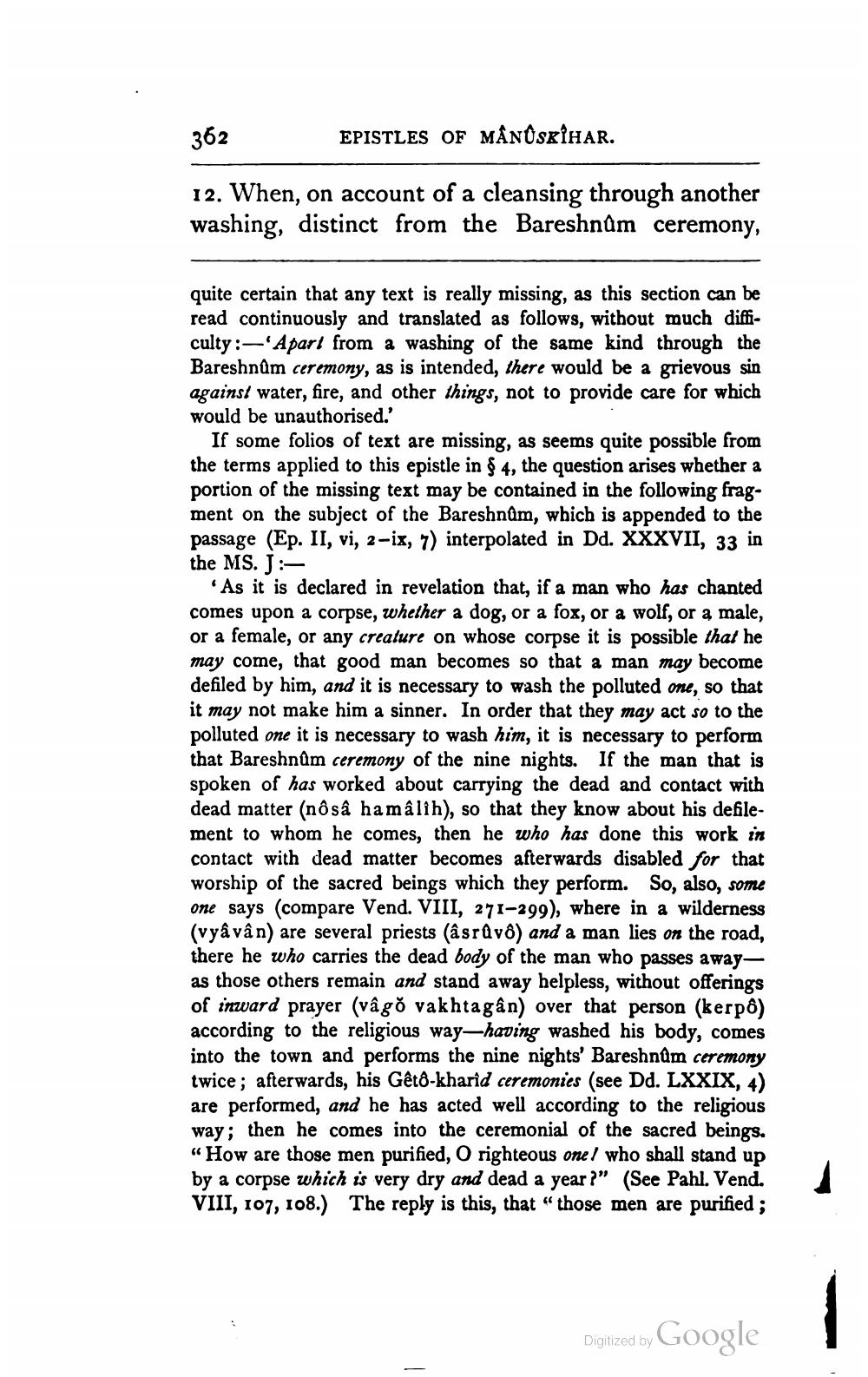________________
362
EPISTLES OF MÂNÜSKÜHAR.
12. When, on account of a cleansing through another washing, distinct from the Bareshnům ceremony,
quite certain that any text is really missing, as this section can be read continuously and translated as follows, without much difficulty:-'Apart from a washing of the same kind through the Bareshnum ceremony, as is intended, there would be a grievous sin against water, fire, and other things, not to provide care for which would be unauthorised.'
If some folios of text are missing, as seems quite possible from the terms applied to this epistle in $ 4, the question arises whether a portion of the missing text may be contained in the following fragment on the subject of the Bareshnům, which is appended to the passage (Ep. II, vi, 2-ix, 7) interpolated in Dd. XXXVII, 33 in the MS. J:
"As it is declared in revelation that, if a man who has chanted comes upon a corpse, whether a dog, or a fox, or a wolf, or a male, or a female, or any creature on whose corpse it is possible that he may come, that good man becomes so that a man may become defiled by him, and it is necessary to wash the polluted one, so that it may not make him a sinner. In order that they may act so to the polluted one it is necessary to wash him, it is necessary to perform that Bareshnûm ceremony of the nine nights. If the man that is spoken of has worked about carrying the dead and contact with dead matter (nô sâ ha mâlih), so that they know about his defilement to whom he comes, then he who has done this work in contact with dead matter becomes afterwards disabled for that worship of the sacred beings which they perform. So, also, some one says (compare Vend. VIII, 271-299), where in a wilderness (vyâvân) are several priests (âsrůvo) and a man lies on the road, there he who carries the dead body of the man who passes awayas those others remain and stand away helpless, without offerings of inward prayer (vago vakhta gån) over that person (kerpo) according to the religious way-having washed his body, comes into the town and performs the nine nights' Bareshnům ceremony twice; afterwards, his Gêtô-kharid ceremonies (see Dd. LXXIX, 4) are performed, and he has acted well according to the religious way; then he comes into the ceremonial of the sacred beings. “How are those men purified, O righteous one, who shall stand up by a corpse which is very dry and dead a year?" (See Pahl. Vend. VIII, 107, 108.) The reply is this, that "those men are purified;
Digitized by Google




